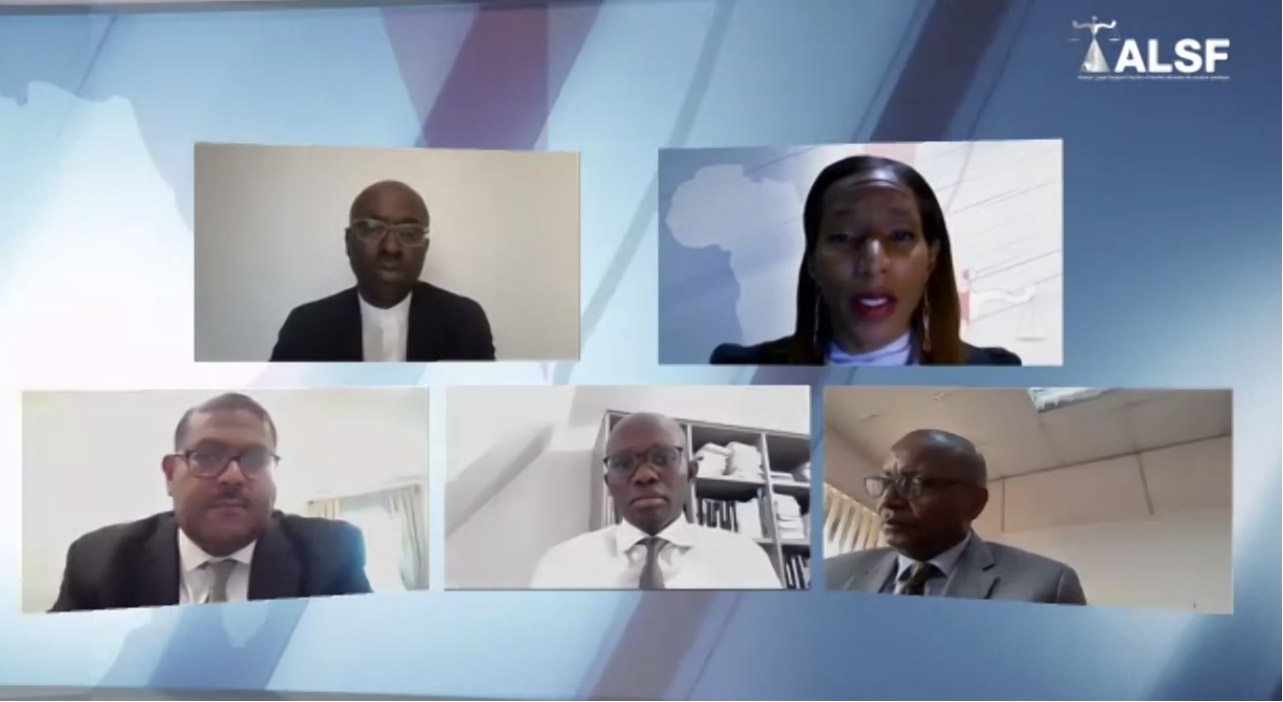


The sovereign debt roundtable was composed of Mr. Cesar Augusto Mba Abogo, AfDB Country Manager for Mozambique and Former Minister of Finance for Equatorial Guinea, Mr. Andrew Mvumbe, Head of the Debt Management Office for Zimbabwe, Mr. Alaweed Alatabani, World Bank secondee and Senior Advisor to the Ministry of Finance of Sudan, Barthelemy Faye, Partner at Cleary Gottlieb, and Ms. Nicole Kearse, Senior Legal Counsel, ALSF.
The panel discussed the topic “Avoiding unsustainable debt for sustainable development”. In reflecting on the state of Africa’s debt, they outlined some of the key challenges African countries are facing in the public debt sector, shared their outlook for Africa’s debt in the future, and proposed solutions to the challenges.
The panel noted that recent challenges confronting Africa in the debt sector have included post Highly Indebted Poor Countries (HIPC) relief debt concerns, increasing external debt and the corresponding increase in debt-to-GDP ratios, pressures on revenues related to debt servicing requirements, issues related to arrears clearance and legacy debt issues, and the need to identify new avenues for resource mobilisation on the Continent. The COVID-19 related global shock has, in many cases, also caused, exposed, or exacerbated existing debt vulnerabilities in Africa.
Notwithstanding the challenges, positive changes related to Africa’s debt sector have occurred in recent years. Over the past few years, many African countries have both sought and been successful in implementing new ways of financing that respond to key concerns such as climate change, the deterioration of coastal areas, biodiversity, safe drinking water and education. African countries have also taken more sophisticated approaches to debt issuances, structuring new debt using the most up-to-date tools and techniques that will protect countries’ resources, assets and people.
Countries have also been more forward looking, understanding the importance of, and developing and implementing policies, legislation and systems that support debt sustainability. These include changes to (i) improve governance and transparency as well as debt and fiscal management, (ii) enhance debt data reporting, (iii) encourage debt-related accountability and responsible borrowing, and (iv) bolster monitoring of the use of proceeds to ensure that debt resources are appropriately allocated to respond to countries’ development needs.
Further, the pandemic - while taxing on all countries - has also led to some positive developments in Africa. For instance, the pandemic has increased awareness of the imperative for better economic governance and effective debt management in Africa. There have also been increased efforts by African countries to strengthen and stimulate economic growth, including through decreasing the drain of public funds and reducing illicit financial flows.
The panellists highlighted the role of the ALSF in supporting the efforts being made by African countries. Through all its activities in the debt sector, the ALSF places a strong emphasis on effective debt management, good governance and capacity building for African governments. With its extended mandate, the ALSF will continue to support African countries in this crucial sector to find creative, innovative and progressive ways to deploy sustainable debt for sustainable development.
Design by Vyou - CopyRight #2019